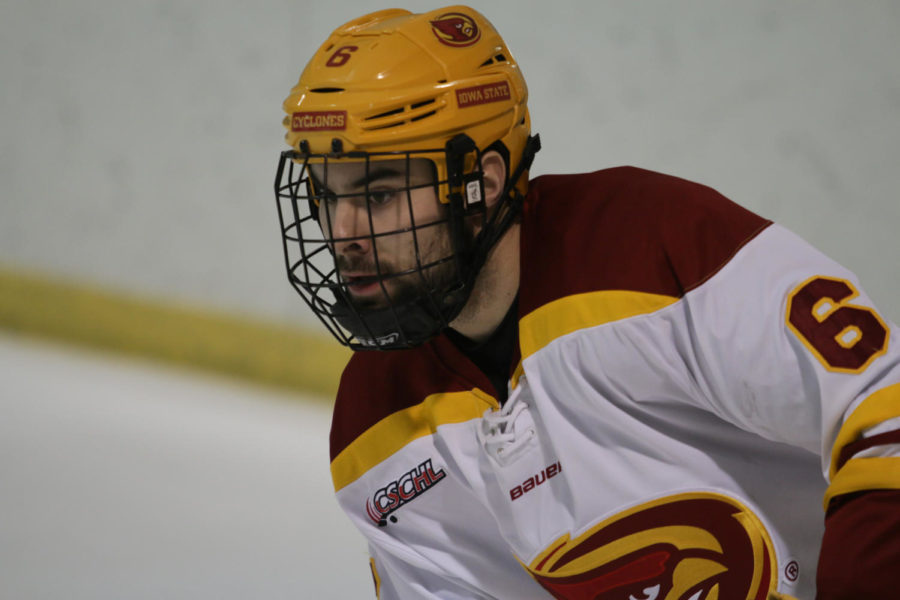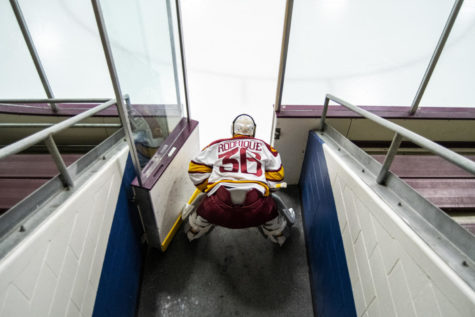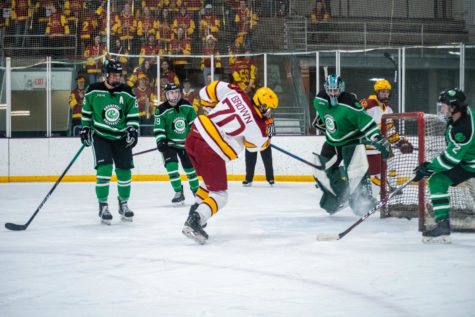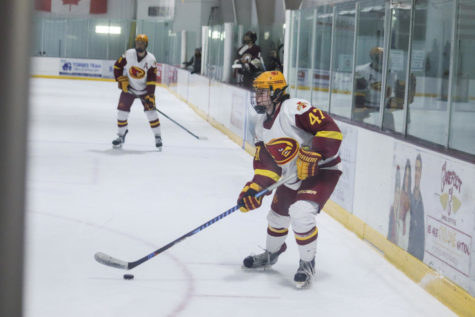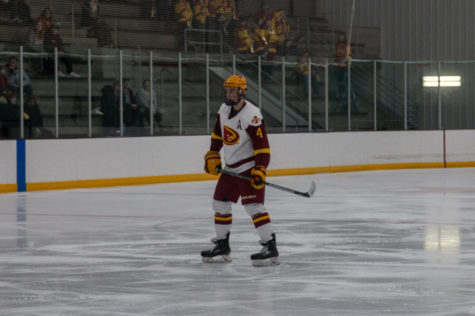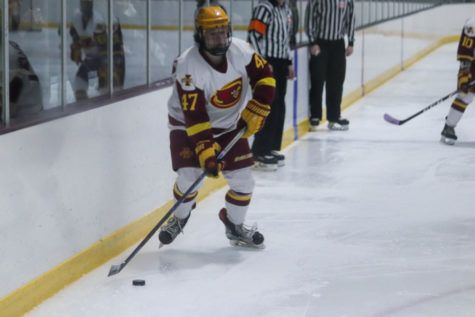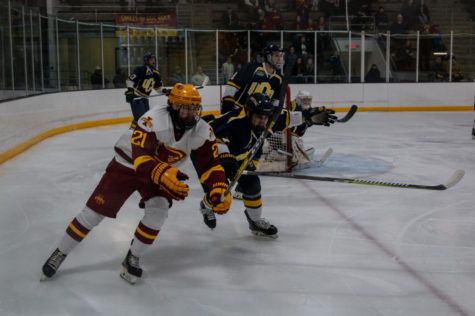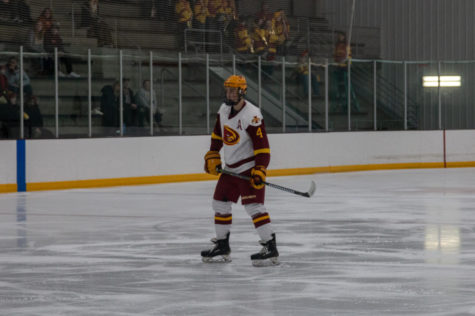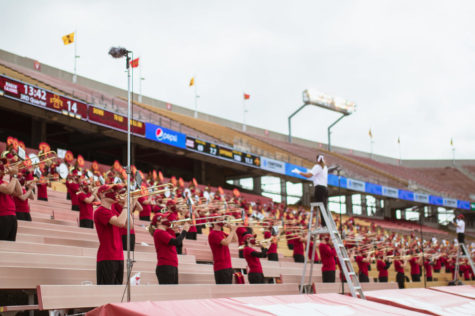Canadian hockey players adjust to life in United States
February 9, 2016
In general, leaving the places you’ve grown up to forge your own path in higher education is difficult. But when that path is taking you across the lines that divide countries, the challenge can be even greater.
Of the 57 players that make up both the Division I and Division III Cyclone Hockey teams, three are natives of Canada.
Freshman Nick Sandy from Calgary, Alberta, and junior Dalton Kaake from Maple Creek, Saskatchewan, both play for the Division I team. Nick Drought, from Victoria, British Columbia, plays for the Division III team.
Finding the “perfect” college is one thing, but coming to the United States to find it is entirely different. But for these three, Iowa State seemed to be just that.
“I was just looking for a place to play afters juniors. And then had the opportunity to come down for a visit and it was kind of everything that I could dream of for a big U.S. school,” Sandy said. “So once that happened, then it was just a matter of getting accepted, making the finances work and then I was here.”
But it wasn’t just good hockey that attracted them to Iowa State. Sandy, Kaake and Drought agreed that Iowa State is a school that can be recognized around the world.
The recognition is one of the many things that, especially in the United States, differ from Canada.
Iowa State is definitely recognizable due to its accredited programs in agricultural studies and engineering. But it is also widely recognized for its sports, like most universities across the country.
“Even like back home we don’t really have any big main college sports. We don’t have people who actually follow it,” Kaake said. “You come down here and it’s just all about the football and the basketball.”
Along with the emphasis on sports, the amount of pride the students place in the university is another big difference between the United States and Canada.
“[The] second weekend I was here, our football team was playing Iowa and it was like 60,000 people in red,” Drought said. “Like it was just a sea of black and red. And I was staring out my dorm room and I couldn’t believe it. My roommate was like ‘what’re you staring at? Like you’ve never seen this before?’ and it’s like ‘No.’ People don’t even wear their university shirts at home and you know [here] it’s like crazy.”
Other than the emphasis on sports and school pride, Ames and the towns the players grew up in Canada aren’t much different.
In Canada, there are a lot of small towns with only a few hundred people, but then there are cities like Vancouver and Ottawa, which have hundreds of thousands.
Whereas in Iowa, practically the same could be said. There are many small towns with only a few hundred people, but then there are cities like Des Moines and Cedar Rapids that are heavily populated.
Both have fairly similar climates and landscapes: flat land with scattered trees and hot summers and cold winters. But the amount of actual snowfall may be a little different.
“Some of the places I’ve traveled to in the U.S. this is probably the most similar people and population to what we’re used to back home,” Sandy said. “It’s made the transition a little easier.”
Though even with these huge similarities and differences, there’s one small comfort from home that the players seem to really miss.
“Tim Hortons is the only thing they really need in Iowa. That’d make it perfect,” Kaake said.
Tim Hortons, a Canadian fast-food restaurant that is known for its doughnuts and coffee, has easily become a new symbol of Canadian culture just like McDonald’s has become one for the United States.
“They’ve got a Tim Horton’s in Athens, Ohio. So whenever the guys [play there, they] stop for food [and] clean the place out pretty quick,” said goaltending coach Scott Ismond, who also is a Canadian native.
Even with all of the differences, and the lack of Tim Hortons, Sandy, Kaake and Drought have all made Ames and Iowa State a home away from home.
“Overall, I’m sure we’re all very happy to be here,” Drought said. “It’s just a great experience to come down to a big state school and play hockey, and get an [education] on top of it.”

